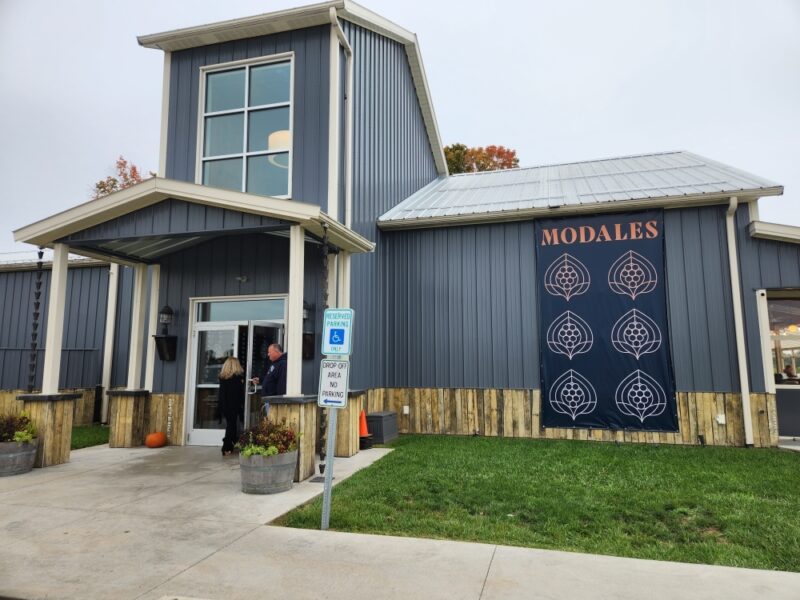Modales Vineyards & Winery, Fennville MI
While taking a tour to several wineries in southwest Michigan, I had the pleasure of visiting Modales Vineyards & Winery with several friends, and it was an exceptional experience. My most pleasurable wine experiences come from interacting with the owners and staff, and learning about the history and philosophies in winemaking and hospitality. During this visit, we had the pleasure of meeting Owner, Jim Gonzalez, who is proud and enthusiastic in what they have built. He was quick to walk us around the winery and talk about the vineyards. Had he not been busy with other things that day, I’m sure he would have taken even more time to visit with us. Such a delight!
From the time we entered the building, and until we left, we were greeted and treated with the best guided experience possible. Our server, or “Wine Ambassador” as described by the winery, was Dave, who was extremely personable and knowledgeable, and once he learned that we were truly interested in the wine and establishment, guided us through a memorable tasting experience.
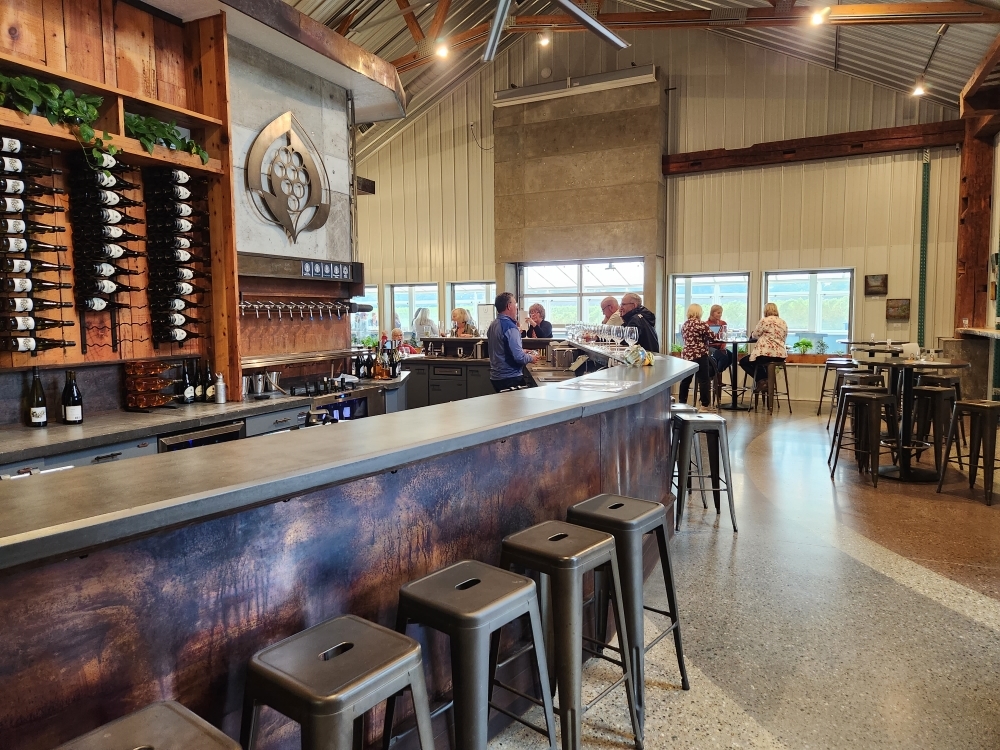
Modales is located in the Fenville AVA. Jim and Carol Gonzalez purchased their first vineyard La Esperanza (The Hope) in 2014, a little over a mile from Lake Michigan. It didn’t take them long to realize they were destined for greater things; crafting their own wines. They hhen purchased 75 acres of farmland in Fennville, where La Gracia (The Grace) vineyard was started. The desire was not just to produce quality wines, but also to restore the land.
They hired Northern California winemaker Andrew Backlin (previously at Steele Wines and Duckhorn), and developed the production site and winery that opened to the public in 2019. When it was found that some existing barn structures could not be repurposed as envisioned, they were removed, but much of the lumber was used for the interior walls of the beautiful winery/tasting room.
When you step inside the door you find a rustic, yet comfortable and spacious, environment. The tasting bar itself is impressive and can seat many patrons. In addition, there is a large windowed seating area that provides a wonderful view of the outdoor patio area and vineyard.
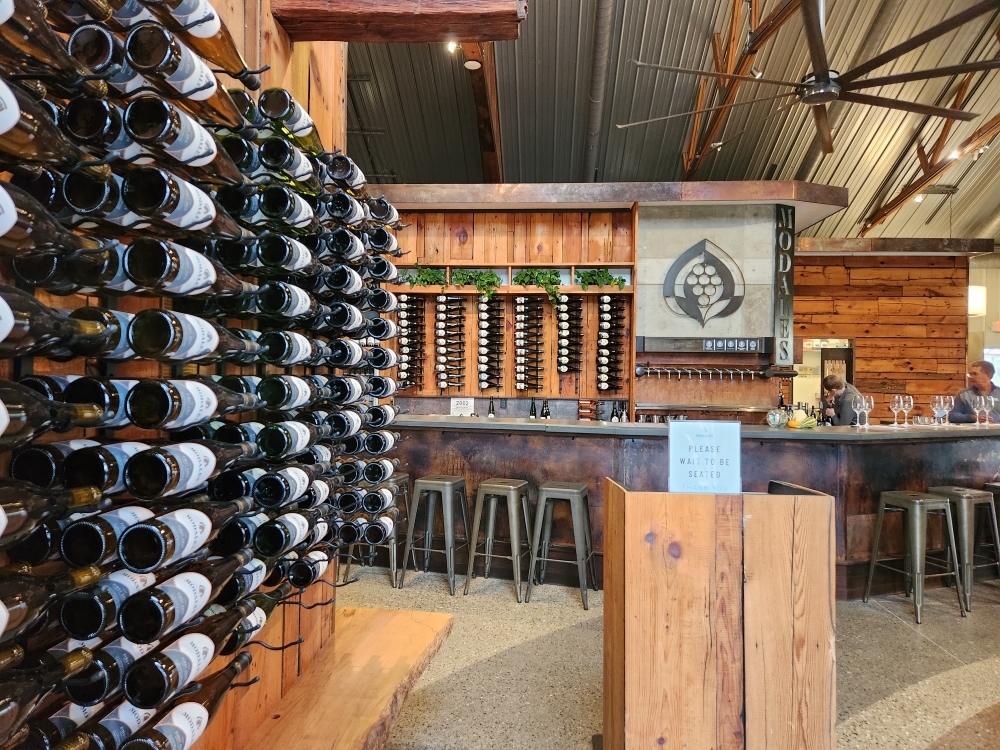
The cool climate off Lake Michigan, along with varying soils in the two vineyards contribute to the ability to produce a many number of grape varieties. As mentioned on their website, “La Esperanza has heavy clay soils which results in concentrated, mineral-rich wines. La Gracia has a sandier composition and is located further inland, producing livelier wines with bright fruit character. Established grape varieties such as Riesling, Chardonnay, Pinot Noir, Merlot, Cabernet Franc, and newly planted Gamay are a large part of the estate but experimental vineyards include Rkatsiteli, Semillon, Alicante Bouschet, Teroldego, Lagrein, Tannat and Petit Manseng”.
Dave was kind enough to share a map of the estate vineyard and the layout of the different varieties. It is exciting to see so many varieties here that you would more quickly associate with the US West Coast, Europe, and other regions around the world. There are some in their experimental plots that are new to me, and some familiar for which I will be anxious to try their future wines.
Let me share with you the wines I experienced on this visit, and my purchased selections*
- 2022 Sauvignon Blanc* – 2023 Michigan Governor’s Cup winner
- 2021 Viognier
- 2022 ‘Contact’ Orange – A blend of Rkatsiteli and Pinot Blanc
- 2021 El Suelo (Earth)* – A blend of Cabernet Sauvignon, Cabernet Franc, and Chambourcin
- 2022 Cabernet Franc
- 2020 Bête Noire* – 100% Chambourcin
- 2020 Pinot Noir*- A new release that was not yet publicly available, and is amazing.
Every wine I tried was wonderful. The whites were vibrant and refreshing and the reds were all as I like, bold, medium to full bodied, with aromas and flavors of dark fruit and/or earthy notes.
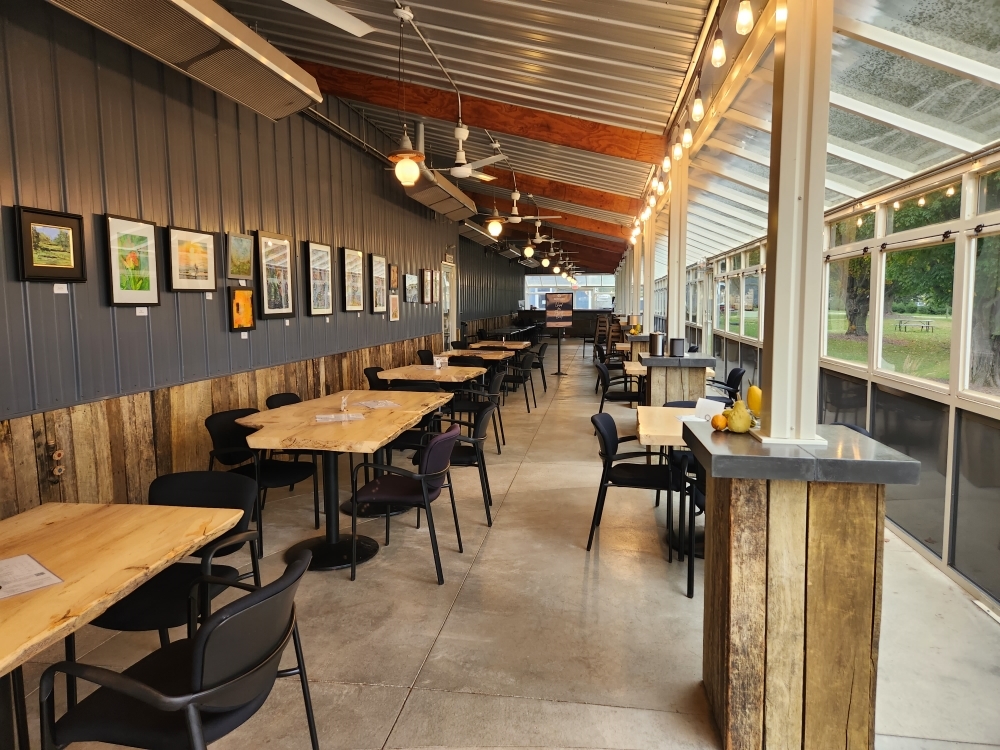
As mentioned earlier, one of the desires is to restore the land. As stated on their website “Incorporating sustainable practices on land that was farmed for decades with conventional methods is not without its challenges, but Vineyard Manager Ben Guerrin was not one to shy away from the undertaking setting the goal for organic certification by 2024. It is the experience of many farmers that utilizing practices that create healthy soils results in plants that are better able to withstand disease, insects, and climatic stresses. Healthy vines translate to better quality wine. Encouraging biodiversity through cover cropping, green manure, and the introduction of animals such as the woolly eaters, aka sheep, blue bird boxes, and raptor perches as well as beneficial insects create a healthy community for all life.”
While on this visit Jim spoke to some in our group about the sustainability practices they are using, including the need for a dog to help shepherd sheep.
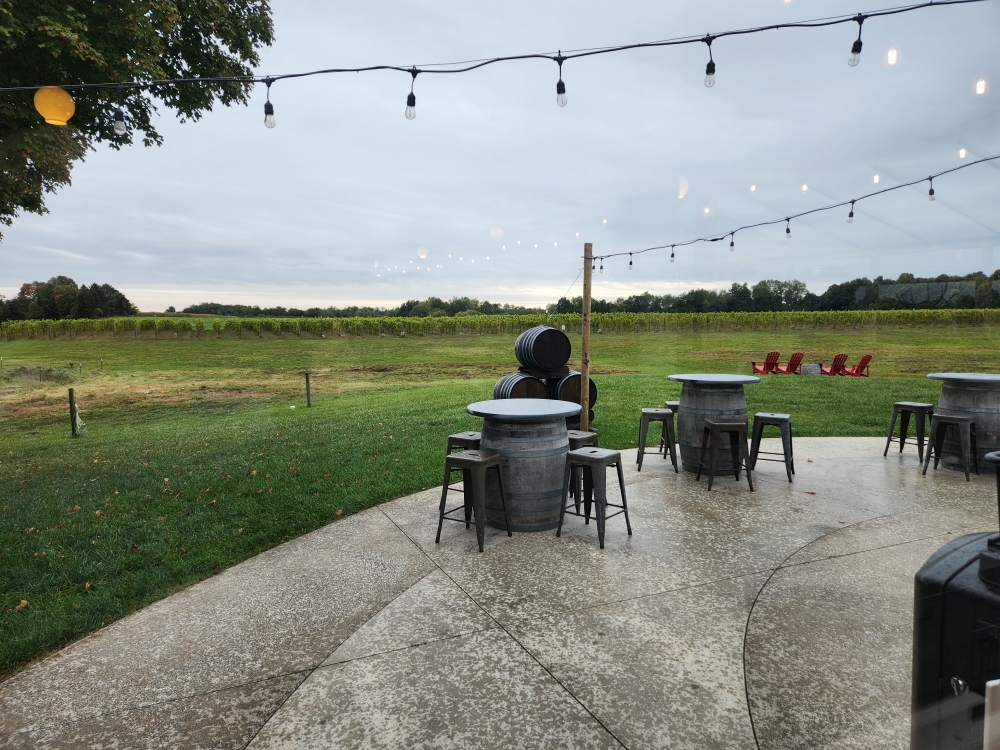
I’m fortunate that Modales is located close to where friends have a vacation home. I’m sure I will have more visits here and look forward to learning more about what’s happening through the Modales website and email.
I wish to thank Jim, Dave, and the rest of the staff for such a memorable experience.
Modales Vineyards & Winery, 2128 62nd St, Fennville, MI 49408

